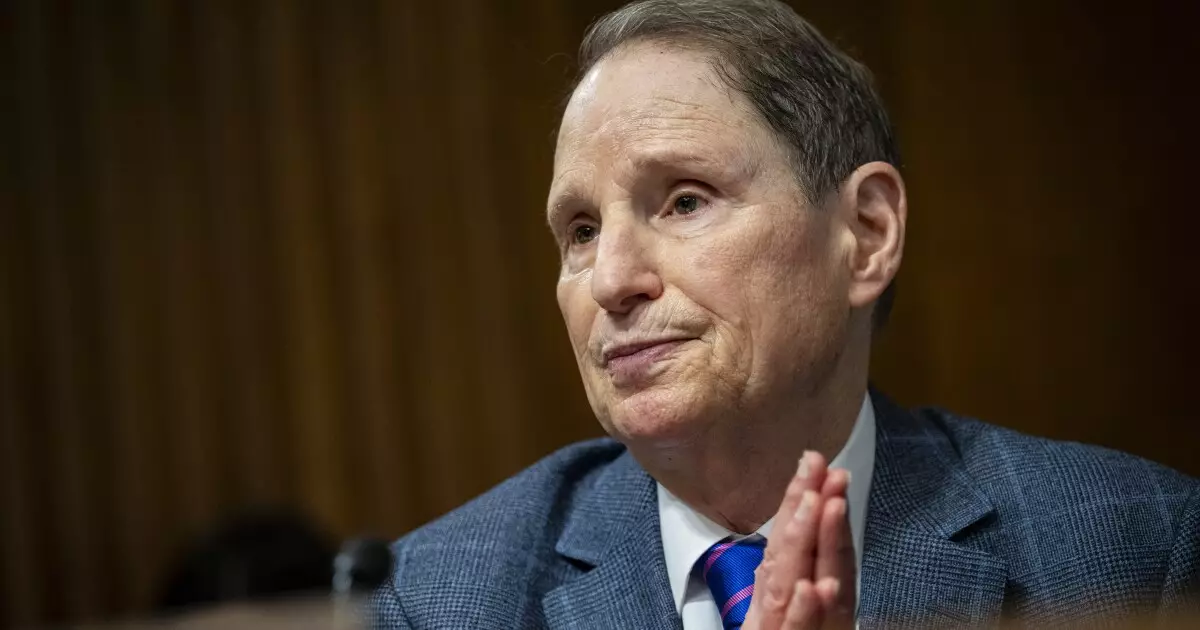As the United States approaches another significant tax debate, lawmakers from both parties are gearing up for an intense discussion that could reshape the fiscal landscape. A recent Senate Finance Committee hearing has illuminated the diverging priorities of Democrats and Republicans as they prepare for a critical confrontation over tax policies that will undoubtedly affect millions of Americans.
Divided Priorities: Wealth, Taxation, and the Middle Class
The impending tax debate, characterized by Senate Finance Committee chair Sen. Ron Wyden’s proclamation that it represents “a make-or-break moment” for the federal budget, underscores the stark differences between the two parties. Democrats are determined to curtail tax-avoidance strategies predominantly employed by high-income earners. In contrast, Republicans are steadfastly committed to preserving the tax breaks instituted by the 2017 Tax Cuts and Jobs Act (TCJA), fearing that allowing these provisions to lapse will lead to substantial tax hikes for average Americans.
This ideological divide raises complex questions about the legitimacy and fairness of the tax system. Wyden’s emphasis on whether the wealthiest Americans will be taxed on their actual earnings signifies a desire for a more equitable tax structure. This concern resonates with broader societal discussions about inequality and the responsibilities of affluent individuals to contribute fairly to the nation’s revenue.
The TCJA, often lauded by Republicans as a transformative economic catalyst, is entering a crucial phase, with many of its pivotal components set to expire soon. Former President Donald Trump has made renewing these provisions a cornerstone of his political campaign, while Vice President Kamala Harris advocates for their expiration, highlighting the sharp contrasts in visions for the nation’s economic future. As Congress prepares for this high-stakes debate, the potential fallout paints a worrying picture for the municipal market, particularly concerning the tax exemptions that many participants fear may come under scrutiny.
Furthermore, the discussion surrounding the $10,000 cap on state and local tax deductions (SALT) remains a hot-button issue. Advocates for the removal of this cap—including newly appointed Senator George Helmy from New Jersey—argue that it heavily burdens middle-class homeowners in high-tax states, stifling economic growth and public services. Helmy’s assertion that the cap disproportionately affects lower- and middle-income families adds another layer to the debate, suggesting that reform must account for the various socioeconomic impacts on taxpayers.
In addition to addressing tax inequities, lawmakers are increasingly focused on affordable housing as a catalyst for economic stability. The desire to promote affordable housing solutions is gaining traction among senators from both parties. Sen. Maggie Hassan’s inquiry into how tax policy can facilitate workforce housing is indicative of a growing recognition that housing-related issues are interlinked with broader economic conditions. Economist Indivar Dutta-Gupta’s call for improvements to the low-income housing tax credit highlights a necessary bid to balance both supply and demand for affordable dwellings.
As the pressure mounts to address housing needs, it becomes evident that the upcoming tax legislation will need to explore innovative funding mechanisms that promote sustainable growth while simultaneously stabilizing the housing market.
Another contentious issue emerging from the hearing involves the proposed “billionaire tax,” which aims to impose a minimum 25% tax on individuals with net worth exceeding $100 million. Sen. Elizabeth Warren’s assertion that this tax could yield $500 billion over a decade highlights the potential benefits of addressing wealth disparity through taxation. However, opposition from figures like Sen. Steve Daines emphasizes the constitutional concerns and ideological tensions associated with targeting wealth accumulation directly.
With tax reform on the horizon, it is clear that the proposed billionaire tax reignites the ongoing debate about financial equity and the responsibilities of the affluent class. Proponents argue that it provides a necessary mechanism for funding crucial public services, while critics warn that it may hinder investment and economic growth, further muddying the already complex narrative surrounding tax reforms.
The Road Ahead: Navigating Uncertainty in Tax Policy
As Congress prepares for what many analysts describe as a “Superbowl of tax policy,” the outcomes will have profound implications for both the federal budget and American taxpayers. The distinct priorities of Democrats and Republicans will shape not only economic policy but also the fabric of American society. With issues such as the wealth tax, SALT deductions, and affordable housing at stake, lawmakers must navigate the treacherous waters of taxation with an eye toward both equity and economic stability. Ultimately, the upcoming tax debate will reflect not just the priorities of Congress but the pulse of the nation itself.

